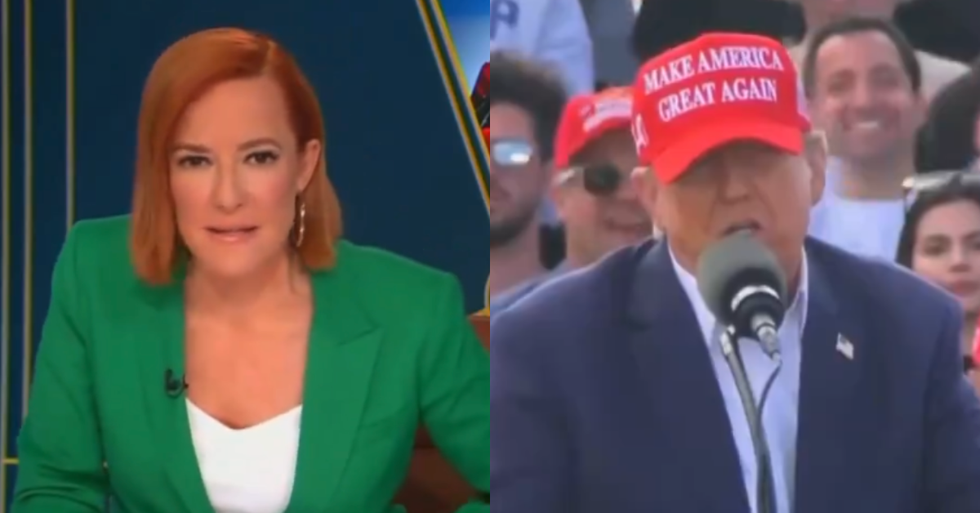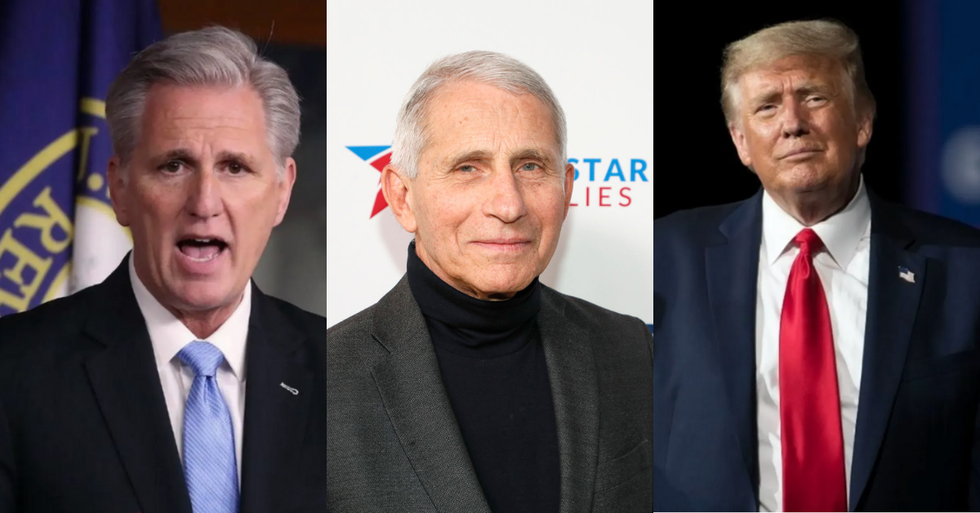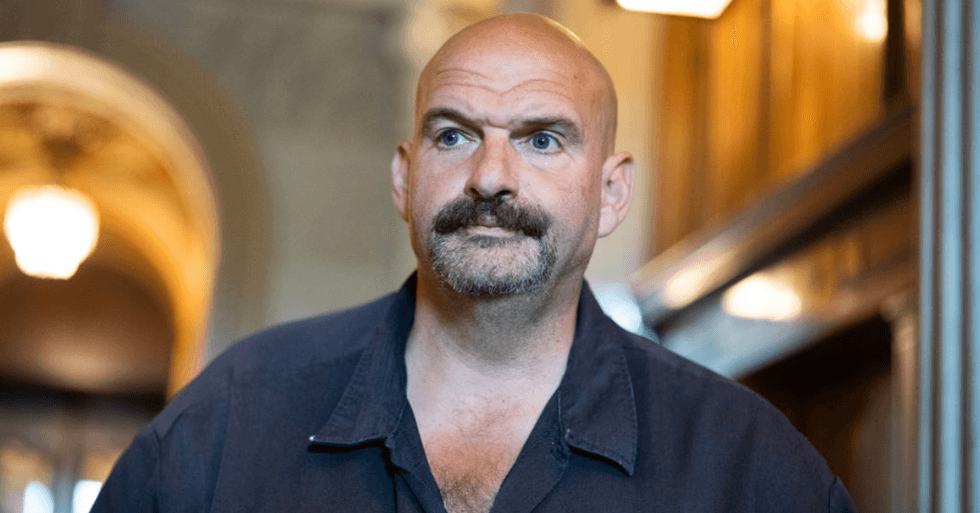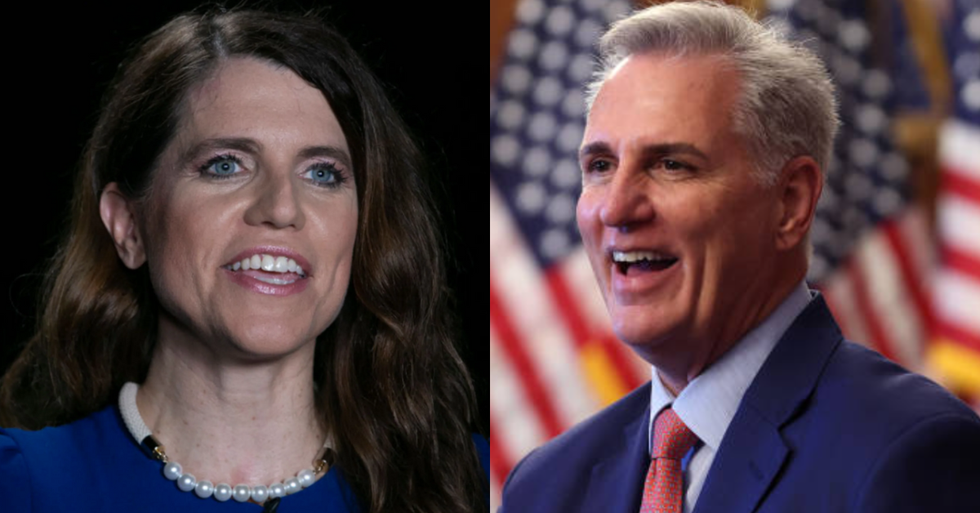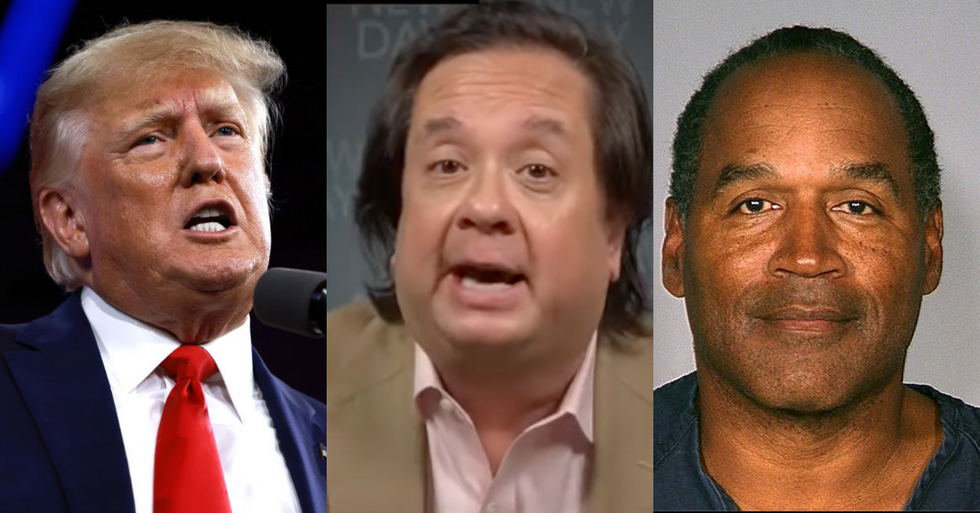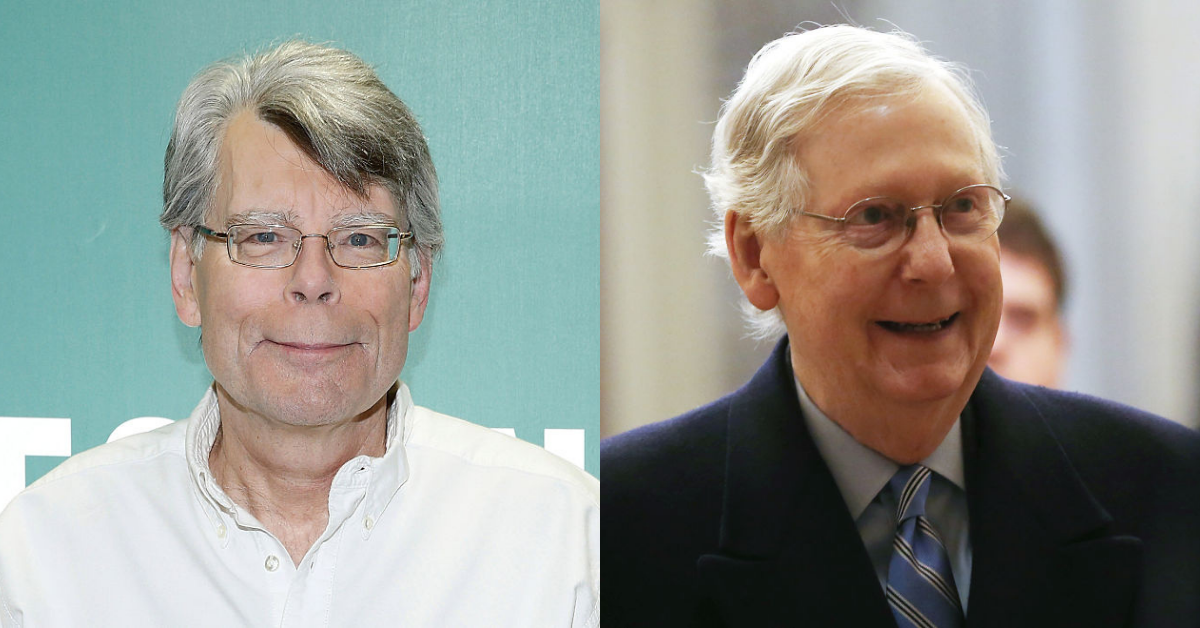Stephen King does not mince words.
The author of such horror classics as Carrie, The Shining, and The Stand lashed out at Senate Minority Leader Mitch McConnell in a tweet on September 21, referring to him as "the most dangerous man in America."
King's comments came as the Republican Party, under McConnell's direction, continues to push back at attempts to raise the debt ceiling, setting the stage for a fiscal crisis.
King observed:
"The current fiscal crisis proves (once more) that Mitch McConnell is the most dangerous man in America."
"He's smart, he's been in the Senate forever, and he knows where all the levers of power are."
The current fiscal crisis proves (once more) that Mitch McConnell is the most dangerous man in America. He\u2019s smart, he\u2019s been in the Senate forever, and he knows where all the levers of power are.— Stephen King (@Stephen King) 1632223116
King has previously referred to McConnell as "crafty" and "a moral flatline," deriding him for putting his party over the good of the country. He remains one of McConnell's more prominent critics in the post-Trump era.
Others concurred with King, with some characterizing McConnell, who has vowed to obstruct the Democrats' agenda in the Senate, as unscrupulous.
And he has no scruples at all. None.https://twitter.com/stephenking/status/1440274258106589186\u00a0\u2026— Martin (@Martin) 1632257760
Dangerous is the right word.https://twitter.com/stephenking/status/1440274258106589186\u00a0\u2026— Dr. Lynn Schmidt (@Dr. Lynn Schmidt) 1632236041
Yes to this. McConnell's unrelenting power is terrifying.https://twitter.com/StephenKing/status/1440274258106589186\u00a0\u2026— Ramona Grigg (@Ramona Grigg) 1632235973
The greatest monsters spring forth, not from the mind of the horror author, but from the hearts of the selfish and powerfulhttps://twitter.com/StephenKing/status/1440274258106589186\u00a0\u2026— Gregory Whittaker (@Gregory Whittaker) 1632239149
Smart is insanely dangerous in a man is despicable & power mad as McConnell.https://twitter.com/stephenking/status/1440274258106589186\u00a0\u2026— Spring Bright (@Spring Bright) 1632245869
LOOK even Stephan King agrees\nMitch McConnell is the most dangerous man in America!!https://twitter.com/StephenKing/status/1440274258106589186\u00a0\u2026— Crystal #unitedagainstcovid \u00af\_(\u30c4)_/\u00af (@Crystal #unitedagainstcovid \u00af\_(\u30c4)_/\u00af) 1632233045
He may be too smart for his own good.https://twitter.com/StephenKing/status/1440274258106589186\u00a0\u2026— Rick A. (@Rick A.) 1632250636
Yesterday, McConnell announced that Republicans will vote for the United States to default on its debt:
"We will not support legislation that raises the debt limit. Democrats do not need our help."
Democrats in the House of Representatives have already unveiled legislation that will avert a government shutdown and keep the government funded through December 3. The bill will also suspend the debt limit into next year.
The House Rules Committee approved the legislation, allowing the measure to be debated in the full chamber, which Democrats control by a narrow margin.
While the measure is expected to swiftly pass the House, it would need the backing of 10 Republicans in the Senate in order to be enacted.
On this front, McConnell and Republicans have refused to work with the Democrats.
Their refusal is largely in protest to a $3.5 trillion spending plan that would codify much of the Democratic agenda, particularly an expansion of the social safety net.
 COMICSANDS
COMICSANDS percolately
percolately georgetakei
georgetakei secondnexus
secondnexus george's picks
george's picks
